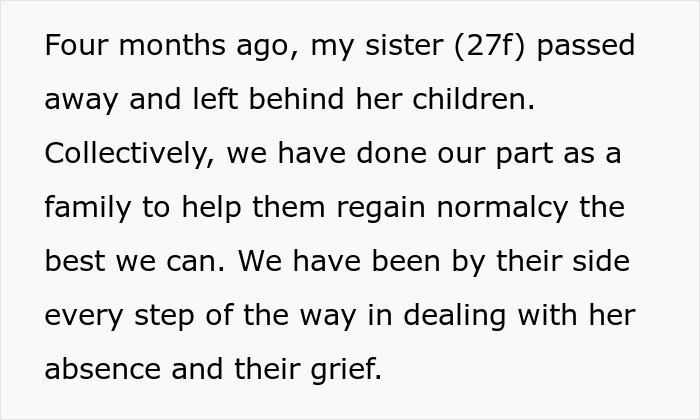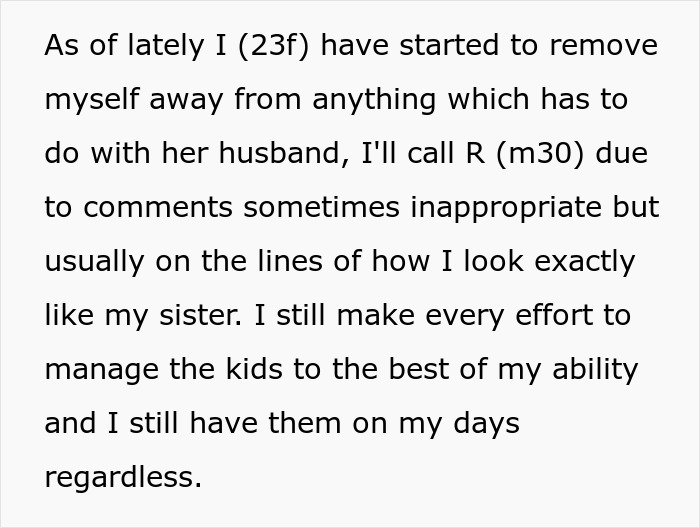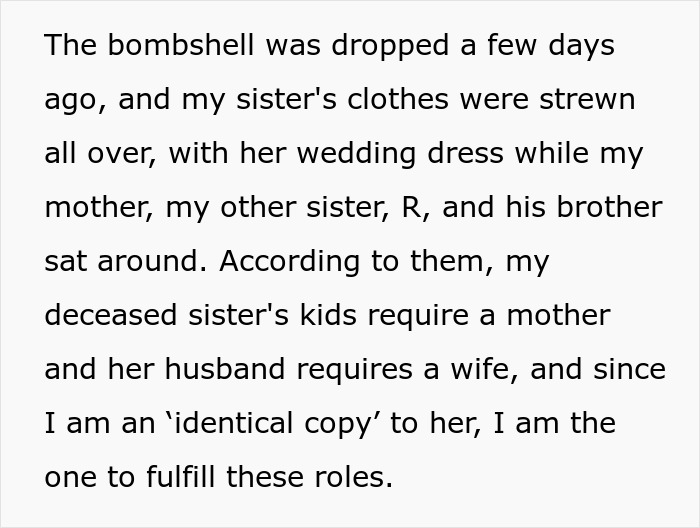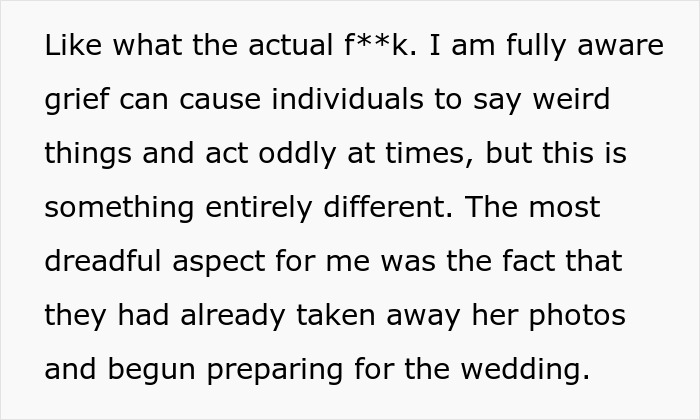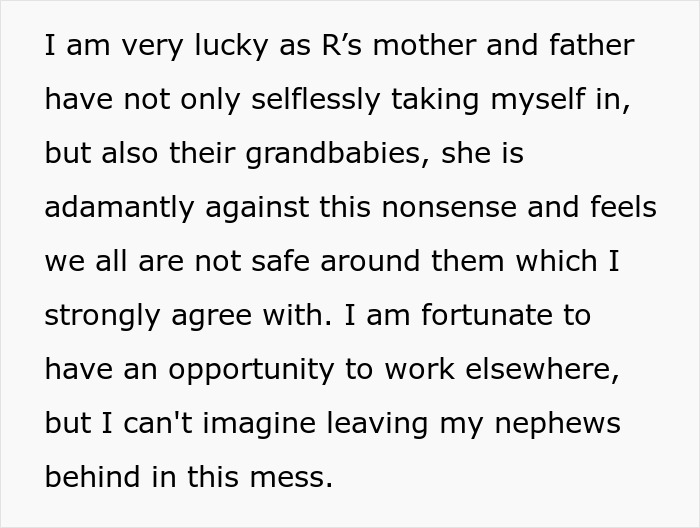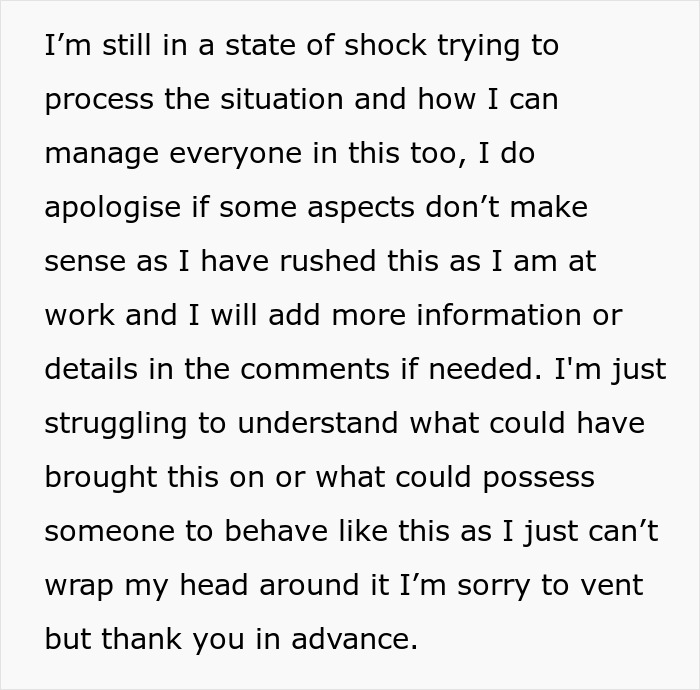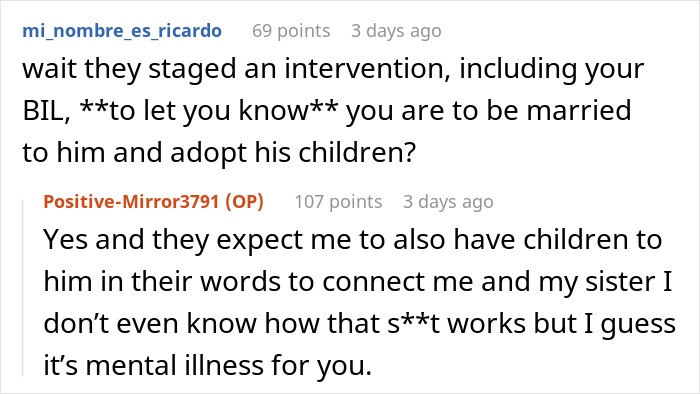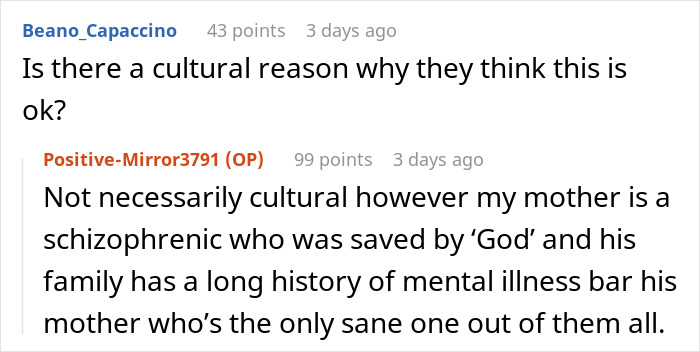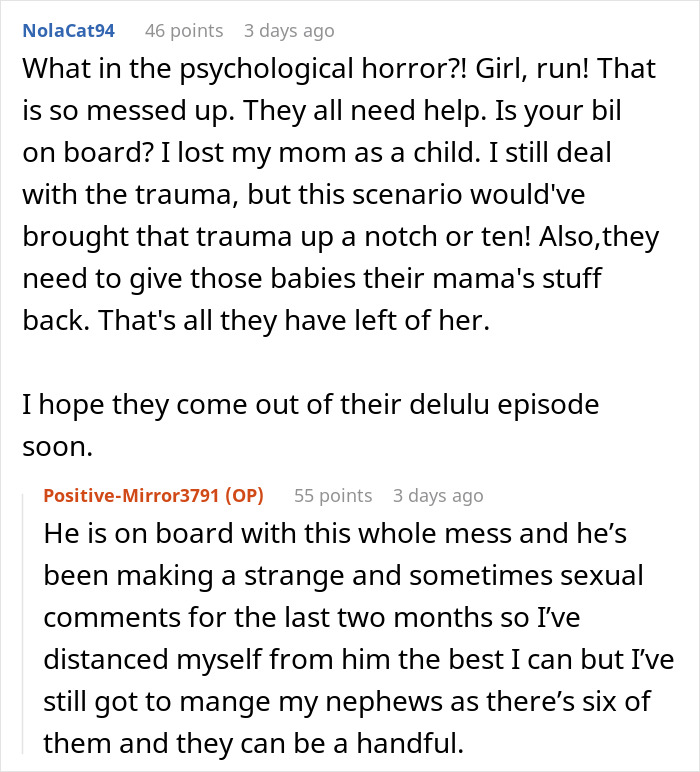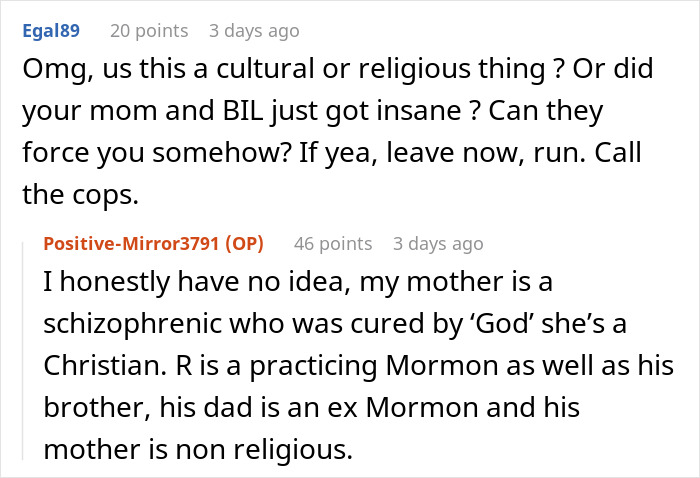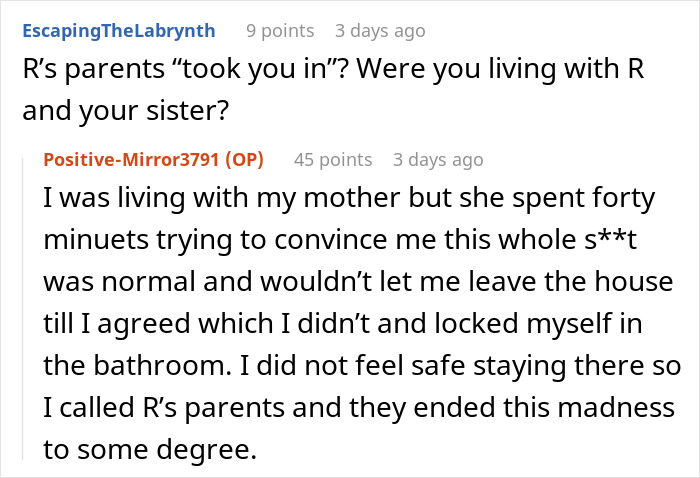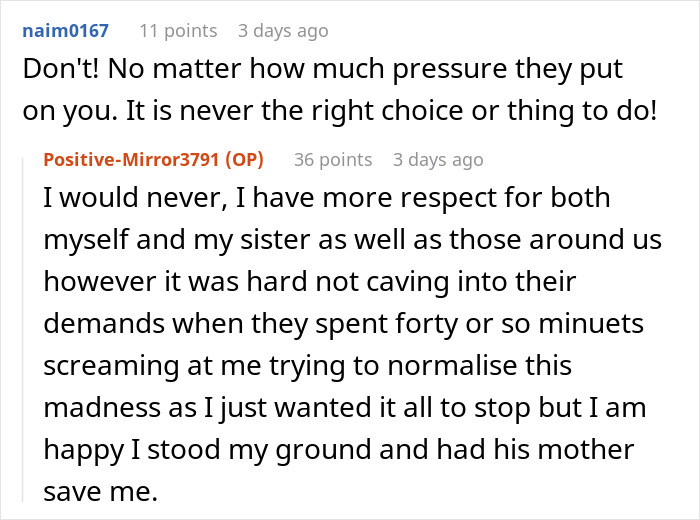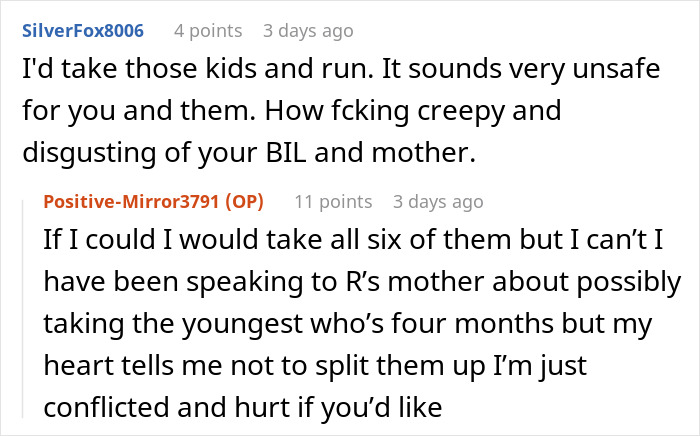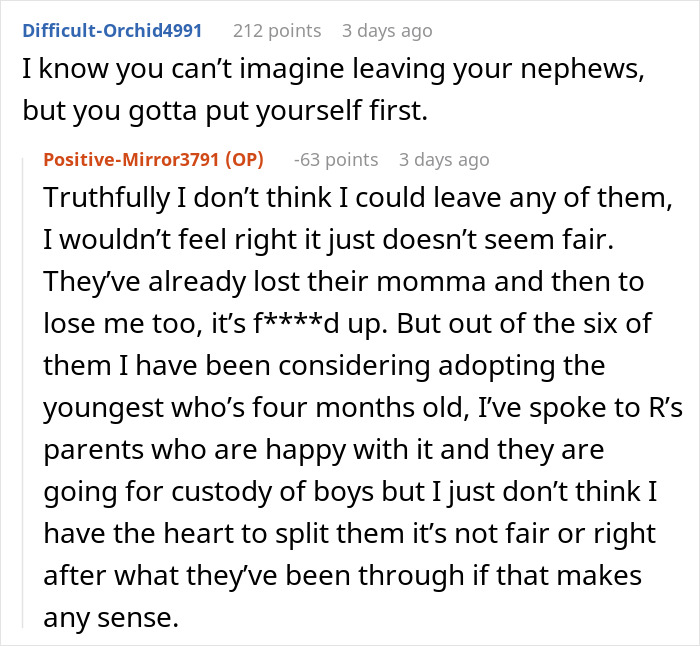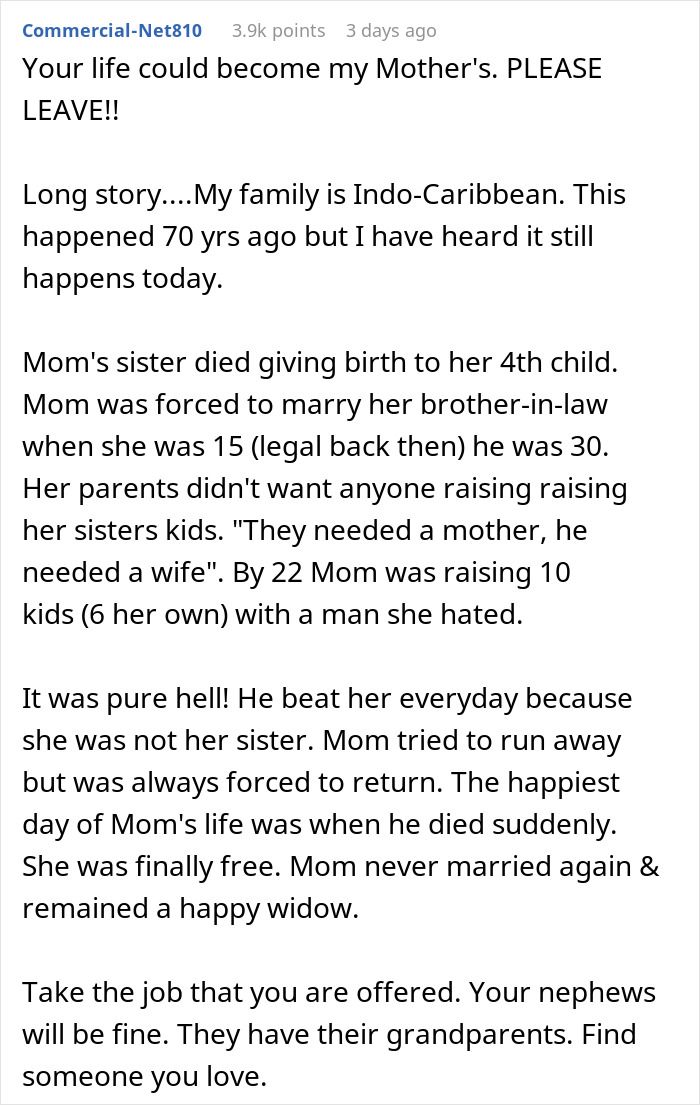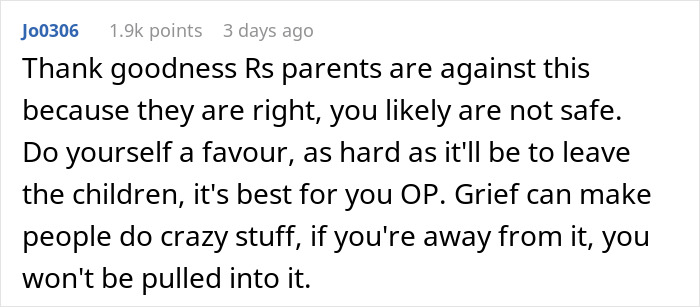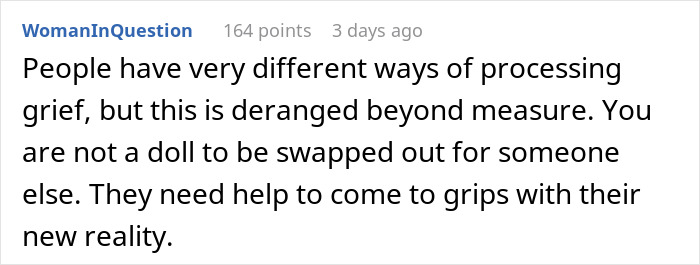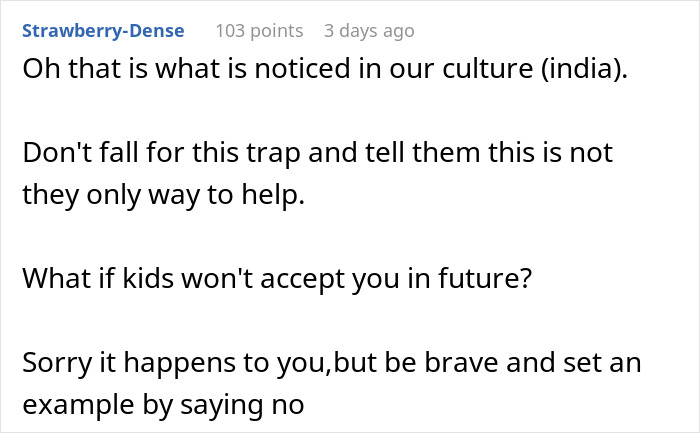It’s completely understandable to say or do things that are a bit out of character while grieving, but one woman’s family has definitely crossed the line when it comes to what’s appropriate. Below, you’ll find a story that this woman recently posted on Reddit, detailing how she’s been told to marry her late sister’s husband, as well as a conversation with Andy Langford, clinical director at Cruse Bereavement Support.
Losing a loved one can turn your entire world upside down
Share icon Image credits: cottonbro studio / pexels (not the actual photo)
Following her sister’s death, this woman was disgusted by her family’s suggestion to marry her brother-in-law
Share icon Image credits: voronaman111 / envato (not the actual photo)
Image credits: Positive-Mirror3791
Later, the woman responded to readers and provided even more information on the situation
Losing a spouse can take a huge toll on a person
Share icon Image credits: Pavel Danilyuk / pexels (not the actual photo) To learn more about the toll it takes on a person to lose a spouse, we reached out to Andy Langford, clinical director at Cruse Bereavement Support. Andy was kind enough to have a chat with Bored Panda and explain how devastating it is to lose a spouse or partner. “There is a considerable emotional load – it’s usual to feel low in mood, anxious, angry, insecure, and to be left wondering why this has happened,” he explained. “There are also so many practical considerations. Many bereaved people in such a situation come to Cruse and talk with us about the financial strain that this leaves them in. Issues around housing are also often present.” “Childcare or care for elderly parents are also serious issues, that are often overlooked by those who are in the wider community of the bereaved person, and so it’s vital to consider everyone who has experienced the loss,” Andy continued. “Childcare and care for other dependents can also put the bereaved person’s job at risk, if all together these considerations become unmanageable. That’s why it’s important to seek support from friends, family and our wider communities, as well as services, if need be.”
“For many of us, when we are grieving – particularly soon after the death of someone close – we can find it difficult to think clearly”
Share icon Image credits: Andrew Neel / pexels (not the actual photo) It’s best to keep an eye on our loved ones while they grieve to ensure they’re safe and supported. “Ultimately, if after experiencing the death of someone close, the grieving person does something that is either harmful to themselves or harmful to others, then it may or may not be to do with the death itself,” Andy says. “However, whatever the situation, it is advisable to contact emergency services or another support service for support. It is important to make sure that any risk is mitigated for the benefit of all concerned.” It’s also crucial to understand that each person’s grief experience is unique, and it can change over time. “However, for many of us, when we are grieving – particularly soon after the death of someone close – we can find it difficult to think clearly,” Andy shared. “This is because of the emotional load we often have to bear. Many bereaved people describe this as feeling like you have a ‘foggy head’ or ‘foggy brain.’” “Grief can also affect us physically, resulting in us feeling slowed up, exhausted and either sleepy or not able to settle and sleep,” the expert says. “This, however, does not usually mean that when we grieve we are not rational. It means that when we have experienced a bereavement, we find it most helpful to be able to speak with someone we trust when we need to, and also have space when we need this as well. Both help us get the head space we need, to think more clearly.”
“All of the weight of one person’s role pressed on to someone else isn’t helpful to all concerned”
Share icon Image credits: Deesha Chandra / pexels (not the actual photo) “Grieving doesn’t mean that we ‘act out of character.’ However it does mean that some of the emotions we tend to keep private or hold down, can come to the surface,” Andy explained. “It’s important to give someone the space to talk, cry and feel how they feel, whilst also conveying that we are there to help and support.” When it comes to this particular situation, Andy says, “It’s not helpful to ask someone, in this way, to step into the role of the person who has died. There may be functions that the person who has died used to fulfil, that others may need to step into and support (childcare is a good example for many families who experience the death of a parent of grandparent). However, essentially trying to replace the entire role of one person with another person is not a good idea.” “If we’ve lost someone close, we need to grieve them as a unique person,” the expert noted. “We also need to work out what life is going to be like without the presence of them around us. This means drawing people in collectively. All of the weight of one person’s role pressed on to someone else isn’t helpful to all concerned, and would probably increase the chance of diminished mental and physical wellbeing for the person being or feeling pressured.” We would love to hear your thoughts on this situation in the comments below, pandas. What would you do if you were in this woman’s shoes? Then, if you’re interested in checking out another Bored Panda article discussing family drama, look no further than right here.
Readers shared their concern for the woman and urged her to get out of this situation
Anyone can write on Bored Panda. Start writing! Follow Bored Panda on Google News! Follow us on Flipboard.com/@boredpanda!


